
Primate Poses
During this season we have talked with researchers working to utilize machine learning for behavioral observations. In previous episodes, you have heard about the software people like Richard use, but you haven't heard much from scientists modifying and using these tools for specific research cases. PhD student, Richard Vogg, is working with multi-camera set-ups to track lemurs and macaques solving puzzle boxes in the wild. His work is part of a larger movement to automate behavioral analyses of video data. Listen in and learn why this tech is useful and why multi-camera setups are a good idea for more reliably identifying poses and individual animals.
31 Juli 202432min
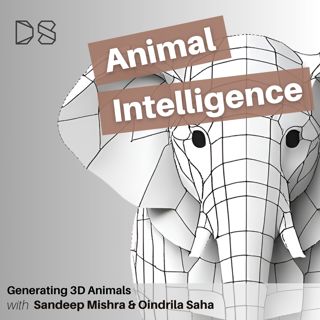
Generating 3D Animals with YouDream
Generative AI can struggle to create realistic animals and 2D representations often have mistakes like extra limbs and tails. If 2D wasn't hard enough, there are researchers working on generative 3D models. 3D models present an extra challenge because there is paucity of training datasets.In this episode, PhD students Sandeep and Oindrila walked us through their work on creating 3D animals using 2D data. Join us to learn about their pipelines, quality control, tie in with iNaturalist, and how this tech could streamline FX pipelines.
23 Juli 20241h
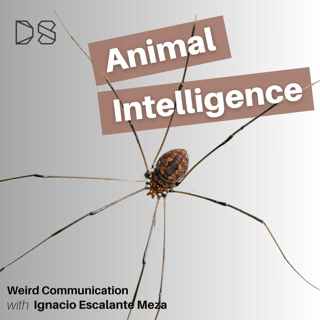
Weird Communication
Today, we sat down with Dr. Ignacio Escalante Meza to learn about opiliones and treehoppers. Opiliones, known as "daddy long legs" in the US, are understudied arachnids known for their tenacious locomotor behavior, sociality, and chemical communication. Treehoppers communicate through the stems of plants using vibrations. They can signal danger, attract mates, and communicate with their offspring. Join us to learn how researchers turn their vibrations into sound waves and study what they have to say.
15 Juli 202438min
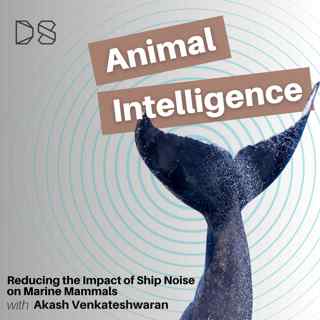
Reducing the Impact of Ship Noise on Marine Mammals
Human shipping operations have increased significantly in the past few decades. While that means international trade and cheap goods for humans, it also means the ocean has experienced an increase in noise pollution. This has a measurable negative impact on marine mammals and other aquatic life. Could mathematics be the solution? This interview explores how optimization techniques can guide voyage optimization in a way that handles multiple optimization objectives including fuel cost and sound reduction.
1 Juli 202436min

Analysis of Unstructured Data
Robbie Moon from the Georgia Tech Scheller College of Business joins us to discuss the analysis of unstructured data and the application of NLP methodologies towards financial data.
28 Juni 202427min

iNaturalist
Have you ever participated in citizen science? Do you want to? One of the most popular platforms for crowdsourcing biodiversity data is iNaturalist. In addition to being a great science tool, the iNaturalist app can help you identify the organisms you encounter every day. We talked to Executive Director Scott Laurie about how scientists use iNaturalist. We also got to discuss what makes iNaturalist's AI species recognition so good, and how citizen scientists are constantly providing high-quality training data. Listen in and learn how this fun-to-use tool works, where it's headed, and how you can get involved.
24 Juni 202437min
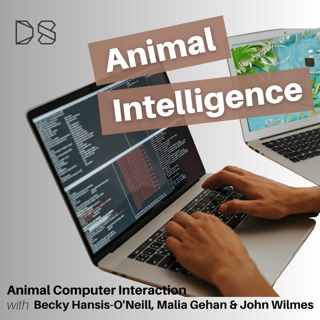
Learn to Code
Do you code or are you interested in learning to code? Join us today and hear from three individuals that are at very different stages of their coding journeys. Becky Hansis-O'Neill (also our co-host this season) shares her experiences as a newbie who wants to learn more. Dr. Malia Gehan, a self-taught developer interested in studying plant phenotypes, explains why and how she and her colleagues learned to code and developed PlantCV. Finally, Dr. John Wilmes discusses his work as a professional mathematician and Machine Learning Research Engineer. Whether you are thinking about learning to code or an expert, we're sure you will see a bit of yourself in this episode.
18 Juni 202449min
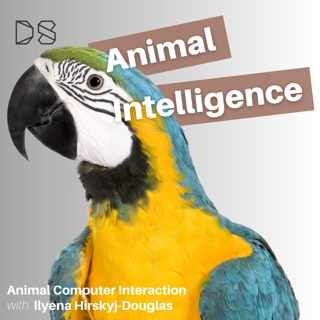
Animal Computer Interaction
You've heard of Human Computer Interaction (HCI), now get ready for Animal Computer Interaction (ACI). Ilyena has made a career developing computer interfaces for non-human animals. She has worked with dogs, parrots, primates, and even giraffes. This is challenging because animals have a wide range of abilities and preferences. Parrots, for example, use their tongues to make selections on touchscreens. Listen in on our conversation and learn about interface development and testing with animals and how technology may improve animal welfare.
10 Juni 202442min





















